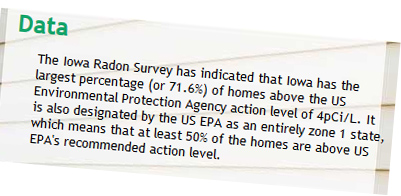4 Tips For A Successful Summer Radon Test
So you have finally decided to get your home tested for radon this summer – great start! Did you know, however, that many factors, such as open windows and doors, air conditioning units, and fans can alter the results of your test results? Before scheduling your summer radon test, keep in mind the following:
1. Keep a closed house.
With the blistering summer temperatures, many of us choose not to leave the windows and doors open anyway, but it is important to note that you must shut all windows and doors at least 12 hours before the test begins and keep them shut throughout the test. You can still use your doors to enter and leave your house, of course, but otherwise keep them closed.
2. Use central air conditioning.
Feel free to use central air conditioning to keep your house cool during radon testing. Be careful, though, when using window and wall air conditioning units, as no air from the outside should enter the house. If you are able, switch the setting so the units are simply recirculating the air inside the house, rather than bringing in additional outside air.
3. Control indoor fans.
Keeping cool in the summer can be a chore, and although it can be tempting to run fans on full blast throughout the house, control the ones that are near the radon testing unit, by redirecting the airflow or simply turning the fan nearest to the testing unit on low. These units can be extremely sensitive and constant blowing air can throw off the test results.
4. Plan ahead – take a vacation.
For some families, summer is the best option for radon testing, as one or more parent may be home from work. However, children entering and leaving the house can make for faulty test results. To avoid the heavy traffic, consider planning a vacation during your radon testing week. Your family will enjoy the time away and your radon technician will be able to conduct the test efficiently and effectively.
 Our Response to COVID-19
Our Response to COVID-19 



